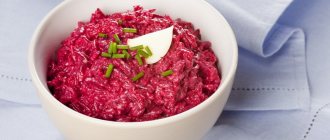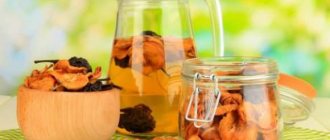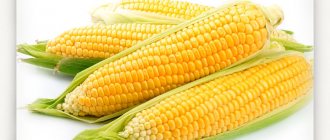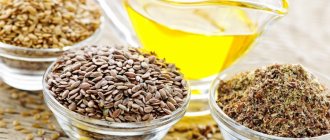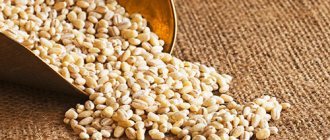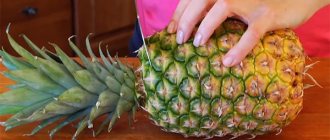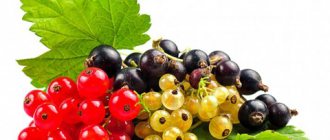A few decades ago, doctors strongly recommended removing all vegetables and fruits from the diet of nursing mothers, especially those that have an aggressive bright color. There was no particular meaning in these prohibitions; they were prohibited on the principle of “no matter what happens.” However, there is still a ban on products that are strong allergens, such as, for example, peanuts or strawberries. But for most others it has already been removed, so a nursing mother can safely eat the same apricots while breastfeeding, saturating her body with healthy vitamins and fiber.
Can a nursing mother eat apricots?
Apricot is a tasty and healthy fruit of the apricot tree, which has a multifaceted chemical composition and has a beneficial effect on all systems of the human body. The described aromatic fruit is not prohibited for consumption by women who are breastfeeding (BF), however, one should not forget about a sense of proportion, since if eaten excessively, it can cause allergies and digestive system disorders in the newborn. It should be noted that it is necessary to accustom your baby to a new product gradually.
Did you know? Dried apricot without pit is called
“
dried apricots
”
, and with a seed inside -
“
apricots
”
.
For the first three months after giving birth, a woman is not recommended to consume fresh fruits, which is why experts advise replacing fresh apricots with dried ones, that is, dried apricots.
The consumption of dried fruits should begin with compotes or decoctions, and in the absence of a negative reaction from the baby’s body, gradually switch to a pure product. After the baby reaches the age of 3 months, you can try fresh apricot, starting with one half of the fruit.
Unpleasant consequences for infants
You can often hear statements like this:
- apricots during breastfeeding can cause a rash or diathesis;
- Apricots make your tummy bloat.
Yes, babies often experience negative reactions after taking various foods. But, firstly, the culprit of these troubles is not necessarily the product itself. If the apricots you bought were once treated with pesticides or special reagents for their rapid ripening, then a rash may indeed appear on the baby’s cheeks from such chemicals. Conclusion - you need to buy these healthy products not in the store, but from grandmothers selling the results of their gardening routine.
When breastfeeding, new foods should be introduced with caution, especially fruits
- Remember that no one is immune from a banal allergy to certain products. Therefore, before eating apricots for the first time, it would be advisable for a nursing mother to check with her relatives (on both sides) if any of them are allergic to this fruit. The same, of course, applies to any other fruit that you are going to add to your diet.
- Very often, childhood constipation can cause food allergies to various foods in infants. As we have already mentioned, apricots, which reduce the risk of constipation, can become an important preventative against allergies - the same rash or diathesis.
- During the first 2-3 months, bloating in infants is the result of the internal digestive organs not yet functioning properly. During these months, mother should not consume anything at all that can have a negative effect on adults, causing, for example, loose stools. In general, in the first weeks, babies walk “big” after each feeding; here it is important to correctly assess the condition of their stool, make sure that mucus does not appear in it and that loose stools are not accompanied by an increase in temperature.
After some childhood vaccinations, babies' reactions to different foods, including apricots, can change significantly. Vaccinations reduce the child’s immunity, and if the baby has diarrhea, the mother should stop eating fruits and vegetables for several days.
Beneficial and harmful properties of apricot
Fresh and ripe apricots have a rich chemical composition, which determines their high beneficial qualities. The fruit is characterized by anti-inflammatory, restorative, laxative, and immunostimulating effects, which makes it possible to improve the functioning of many systems of women’s and children’s bodies.
For mother
The fruits of the apricot tree contain many beneficial vitamins and minerals, in particular:
- vitamins: A, E, C, K, group B;
- microelements: iron, fluorine, zinc;
- macroelements: potassium, magnesium, calcium, sodium, phosphorus.
In addition, the composition of the fruit is supplemented with dietary fiber, natural acids, and tannins. By regularly consuming the product, a mother during lactation will be able to get rid of a number of health problems.
Find out if you can eat asparagus, onions, parsley, cherries, melon and carrots while breastfeeding.
The fruit has a positive effect on internal systems:
- improves digestion, accelerates metabolic processes;
- due to the presence of fiber, it allows you to get rid of and prevent constipation, improve the functioning of the gastrointestinal tract;
- strengthens bone and muscle tissue due to the presence of iron;
- strengthens the immune system, increases the body's resistance to harmful external factors;
- has a positive effect on the functioning of the heart muscle, strengthens the walls of blood vessels, increases the elasticity and strength of blood vessels;
- thanks to potassium and sodium, it normalizes water balance, promotes the removal of excess fluid, which allows you to get rid of swelling;
- has a beneficial effect on the functioning of the nervous system, relieves depression that may occur after childbirth;
- serves as a prevention of anemia, increases the level of hemoglobin in the blood;
- normalizes blood pressure;
- removes harmful substances, radionuclides from the body, reduces the negative effects of free radicals;
- improves the condition of the skin, eliminates dryness and flaking of the epidermis, prevents premature aging of the skin;
- allows you to quickly get rid of extra pounds gained during pregnancy.
The fruits of the apricot tree are a valuable product for a nursing mother, however, in some cases they can cause harm to the body.
The main contraindications to fruit consumption are described below in the section of the same name. Important! In order not to harm the baby’s health, you need to eat no more than 3
–
5 fruits.
For babies
- Apricot is no less useful for babies:
- acts as a general tonic, strengthens the immune system and increases the body's protective functions from the harmful effects of external factors;
- improves and normalizes the functioning of the digestive tract;
- promotes good bowel movements and prevents constipation;
- strengthens the baby's cardiovascular system;
- due to the increased content of fructose and glucose, it has a positive effect on the child’s endocrine system;
- helps strengthen skeletal bones and their proper development;
- improves brain and nervous system function;
- normalizes the functioning of the kidneys and genitourinary system;
- prevents the development of anemia in the baby.
Recommendations for drinking apricot juice while breastfeeding
The season for apricots is June-July, this is the time to buy them for making juice. Pay attention to the color of the fruit, it should be bright orange.
- If you notice a negative reaction in your child, stop drinking apricot juice immediately; a significant overdose of the substances contained in this drink can lead to serious health problems.
- Do not under any circumstances exceed the recommended daily and weekly intake.
- Store-bought juices should not be consumed during lactation - they often contain various preservatives, sweeteners and thickeners. In addition, such drinks are high in sugar.
- You can mix apricot juice and, for example, apple juice. This drink will be much healthier and tastier.
Before juicing, remove the skin of the fruit as it may contain toxic substances.
As you can see, apricot juice during breastfeeding is one of those drinks that is good only in moderation. Of course, this nectar contains a large amount of useful substances and minerals, but even a small excess of them in the body can lead to negative consequences.
A few decades ago, doctors strongly recommended removing all vegetables and fruits from the diet of nursing mothers, especially those that have an aggressive bright color. There was no particular meaning in these prohibitions; they were prohibited on the principle of “no matter what happens.” However, there is still a ban on products that are strong allergens, such as, for example, peanuts or strawberries. But for most others it has already been removed, so a nursing mother can safely eat the same apricots while breastfeeding, saturating her body with healthy vitamins and fiber.
Apricots are tasty and healthy fruits, especially for breastfeeding mothers
Our grandmothers’ negative attitude towards apricots, for example, was explained by completely understandable reasons. Everyone knows how apricots affect the human body, especially if eaten on an empty stomach. But the absurdity of such fears becomes obvious when you consider how difficult the path is for any product consumed by a nursing mother as food, through the stomach, etc., until, finally, having been transformed, it reaches the mammary glands.
By the way, it has been noticed that babies whose mothers include apricots in their diet have almost no constipation. Apricots also contain useful substances, vitamins and microelements:
- promote the proper growth of the child;
- normalize its development;
- strengthen the immune system.
Another beneficial property of eating apricots by a nursing mother is not so clearly expressed, but is also of great importance. Many women experienced severe stress during pregnancy and childbirth. In this case, a nutritious diet is one of those things that helps normalize the psychological well-being of a young mother. If you eat such delicacies more often, a woman’s mood improves, which only benefits the lactation process. There is more milk, and its quality improves significantly.
Another question is eating foods that are unpleasant for the mother herself. The same apricots, if they cause digestive problems for a nursing mother, must be excluded from her diet. Therefore, no matter how much you would like to add beneficial ingredients from fresh apricots to your milk, if you personally have a contraindication for taking them, it is better to abandon this idea. In any case, you should first consult your doctor.
Apricot consumption during breastfeeding periods
While breastfeeding, young mothers are not prohibited from eating fresh and dried apricots, however, it is recommended to follow several important rules.
Important! Excessive consumption of apricots by a nursing mother can cause colic, bloating, increased flatulence, and constipation in the baby.
In the first month
In the first month after childbirth, it is not recommended for women with breastfeeding to consume fresh fruit. The baby’s digestive system is quite weak and is characterized by low barrier functions, which can lead to an inadequate reaction of the child’s body to the product. During this period, you can replace fresh fruit with apricot compote or a decoction of dried fruits.
It is better to drink such a drink in small portions, carefully observing the reaction of the baby’s body. If the child behaves adequately, is not bothered by colic or bloating, and has no allergic rashes or itching, then the dose of compote can be increased to several glasses a day.
In the second month
In the second month after the birth of the baby, a young mother can afford to try dried apricots. Again, you should begin to introduce dried fruits into the menu gradually and little by little, carefully monitoring the child’s behavior and observing the reaction of his body. If a baby may experience allergic reactions to fresh apricots, then, as a rule, such problems arise extremely rarely when consuming dried apricots.
Did you know? The leader in apricot cultivation is Türkiye.
In the third and fourth month
Starting from the third year of the child’s life, the mother is allowed to introduce fresh apricots into the diet. The first portion of fruit should be no more than half a fruit. If there is no negative reaction from the baby’s body, you can increase the portion of apricots to 3–5 per day.
Choosing a product
In the summer season, fresh apricots go on sale, and canned and dried products (dried apricots, apricots, kaisa) are available all year round.
In the southern regions, where apricots grow in private gardens, preference should be given to your own fruit or purchased from people you know well. Residents of the central and northern regions are forced to purchase mass-produced apricots, which cannot be done without the use of chemicals.
Apricots purchased at the market or in a store must be thoroughly washed, it is advisable to even remove the skin, in which harmful substances are concentrated. This will help reduce potential danger to mother and baby.
Canned apricots presented in the retail chain contain preservatives, dyes and other additives that are harmful to the health and development of infants. Homemade canned food (jams, compotes, etc.) are allowed, but in small quantities - excess sugar in the diet should be avoided.
When choosing dried apricots, pay attention to its appearance. Bright, beautiful dried fruits are harmful - they are treated with chemicals to maintain their attractive appearance. Give preference to an ordinary, inconspicuous product - dried apricot compote is very useful, especially in winter and early spring, during a period of heat and vitamin deficiency.
Features of eating apricot fruits
As noted above, in order not to harm the baby’s health, the consumption of apricots and dried apricots by a nursing mother should be strictly dosed.
Norm per day
It is necessary to start consuming fresh fruit when the child is three months old.
At the same time, experts advise:
- You need to start consuming fruit with one half;
- eat the fruit in the morning and observe the baby’s body’s reaction throughout the day;
- in the absence of any negative reactions, the mother is allowed to eat the fruit in quantities of no more than 3–5 pieces per day.
A slight laxative effect in a baby when consuming a juicy product is considered normal, so there is no need to worry about this. But any rashes, itching, flatulence, colic or bloating in a child are a serious reason to stop eating the fruit.
You will be interested to know how many apricot kernels you can eat per day.
As for dried apricots, you can eat 50–100 g of it per day, while observing all the above rules for introducing the product into the diet.
Apricot preparation method
Women during lactation can eat apricots not only in dried or fresh form. The fruit is perfect for making compotes, uzvars, apricot jam, and jam. Baked goods made from fruits, purees, desserts, jelly, marmalade or homemade marshmallows will be very tasty. Apricots are used to make fruit or vegetable salads, sauces, make fruit drinks, and add them to porridge or muesli.
Did you know? The apricot was brought to European countries by Alexander the Great from the East. And the first mentions of the fruit date back to more than 4000 BC.
This versatile fruit can be baked, stewed, boiled, or dried. Surprisingly, the dried fruit, that is, dried apricots, contains several times more useful substances than fresh apricots, and is much easier to digest by the digestive tract.
Correct combination with other products
You need to know that apricot may be incompatible with many foods. In particular, the fruit should not be consumed simultaneously with protein foods of animal origin or immediately after eating it, as this can cause serious digestive problems. It is best to eat fresh fruits and dried fruits separately from all other foods, 30 minutes before the main meal or one hour later.
Apricot can be combined with fermented milk products, for example, kefir, yogurt or cottage cheese; it can be combined with sour fruits, herbs, and nuts. It is not recommended to eat apricots with legumes, peas, and starchy foods at the same time.
Rules for parents
A nursing woman eats apricots, peaches, plums, apples and other fruits starting from the third week of feeding. When the baby is one month old, the mother introduces fruits into her menu every day. To ensure that these healthy and tasty fruits bring only benefits to mother and baby, follow the following rules:
We recommend reading: Is it possible for breastfeeding mothers to have no-shpu?
- If there are no allergy sufferers on both sides of the family and the child is not predisposed to this disease, you can confidently introduce apricots into the menu of a nursing woman in the first or second month.
- Any fruit is not eaten in the morning on an empty stomach, but a couple of hours after eating, so as not to cause irritation in the stomach and fermentation in the intestines. Before lunch and dinner, it is useful to eat fruit 15-30 minutes before meals.
- Consume fruits and berries in season, in the place where they grow, during their natural ripening. The shorter the path from tree to table, the more benefits and energy the product contains. Those fruits that are on the shelves all year round may have gone through a long journey of transportation and storage.
- In recent years, sellers have learned to chemically process fruits and vegetables for transportation and long-term storage. Therefore, wash all fruits and vegetables thoroughly in hot water and soap. If the chemicals do not have an effect on an adult, the baby may become severely poisoned.
- If your newborn has colic, give up fruit for a while until the baby's unpleasant symptoms go away.
Possible contraindications and side effects
Apricot does not belong to the category of strong allergens, but in some cases it can cause allergic reactions in the form of rashes, itching, redness, diathesis, and diarrhea. Before eating a product during breastfeeding, you need to make sure that the mother does not have an individual intolerance to the fruit.
- The main contraindications to consuming the fruit are:
- any ailments in the acute stage;
- heart pathologies;
- diabetes mellitus type 1 and 2;
- liver and kidney diseases;
- pancreatitis;
- tendency to allergic reactions;
- disorders of the thyroid gland.
Consuming the product on an empty stomach can cause bloating, severe pain, and diarrhea. Apricot is one of the most important products that should be present in the diet of a nursing mother.
Did you know? 100 g of fresh apricot contains about 41 kcal, while the calorie content of the fruit in dried form is almost six times higher and is already 240 kcal.
It has a rich composition that allows you to improve the functioning of many internal systems. However, it is necessary to introduce fruit into the menu with great caution, since if consumed excessively, it can cause digestive tract disorders, increased flatulence and colic in the baby.
Is it possible to replace fresh apricots with canned food?
There is an opinion that instead of fresh apricots, young mothers should limit themselves to various products made from these fruits. It can be:
- apricot compote;
- apricot jam;
- dried fruits.
Yes, products in this form are perceived much easier by the body of the mother and her baby. But the composition of the preserve, as well as the recipes for its preparation, can be very different. Apricot jam or compote, prepared in different families, can be both useful and undesirable for mothers with gw.
Bottom line - if you don’t know exactly how a particular apricot-based product was prepared, it’s better not to take risks and refuse to eat it.
But dried fruits - dried apricots or apricots - which contain many useful substances, can be consumed. True, it is advisable to do this after your baby’s digestion has completely improved, i.e. by four months, not earlier. Dried apricots promote diuretic processes, it normalizes blood pressure in a nursing woman, and it is also a good preventative against constipation in babies.
How to choose the “right” dried apricots
When choosing dried apricots at the market and in the store, the main thing to remember is that properly dried dried fruit cannot be too bright and moist. This indicates that the fruit has been treated with sulfur gas (so that a beautiful color remains) and glycerin or oil. You can buy them, but only if there is no other choice. Such fruits will need to be soaked in boiling water for 15-20 minutes and then rinsed with water.
Dried berries should be exactly dry, dark orange to brown, crumbly. Such dried apricots will be sweeter. Yes, it is tougher than gas-dried, but at the same time it is healthier.
It is best to dry apricots at home. But, if this is not possible, then you should know the criteria for choosing a quality product.
- Avoid dried apricots that are too bright and deep orange in color.
- Give preference to medium-sized, regular-shaped fruits.
- There is no need to take dried apricots if they are too soft or hard. Everything should be in moderation.
- Avoid transparent fruits with an ideal appearance (no inclusions, wrinkles, smooth surface). Such dried apricots are most likely prepared using chemicals. Preservatives may have been used during transportation.
Homemade dried fruits are considered the most useful, especially when breastfeeding. But not everyone has the opportunity to dry apricots according to all the rules.
When buying dried apricots in the store, nursing mothers should avoid the perfectly smooth, glossy bright orange fruits. Such colorful dried apricots were treated with sulfur smoke, which is very dangerous to health.
Women carefully monitor their diet while breastfeeding. After giving birth, nursing mothers should include a small amount of dried apricots in the menu to replenish strength, strengthen the immune system, and nourish the body with vitamins. In addition, mother's milk will be more beneficial for the baby. The most important condition is compliance with the measure, but under no circumstances should you completely exclude dried fruits from your diet.
The shine and bright orange color of dried apricot is a sign of treatment with sulfur dioxide (sulfur dioxide or food additive E220). The substance obtained during the combustion of sulfur is used to fumigate the fruits before drying. It destroys harmful microorganisms and preserves the attractive appearance of dried apricots. For an adult, the treatment is not toxic, but it can cause harm to a fragile child.
Organic (unprocessed) dried apricots have:
- high density;
- pale yellow or dark brown;
- dry structure.
Some amount of sulfur dioxide may also be present in naturally dried dried apricots. A good wash of dried fruits can get rid of it. They are filled with hot water and left for 15 minutes. The water is drained, compote is made from the fruits or consumed in its natural form.
The benefits of dried apricots
Many young mothers are interested in the question of whether dried apricots can be eaten while breastfeeding. Doubts are understandable, because the baby is very susceptible to any changes in diet. At the same time, this dried fruit is known for its beneficial properties, which are very important for a woman during the postpartum recovery period.
Dried apricot, like prunes, successfully replaces sweets for a nursing mother because it contains glucose and fructose. These natural carbohydrates are easily digestible, give you a good mood and do not threaten you with excess weight, so they are doubly pleasant to eat.
Dried apricots contain many vital vitamins and microelements that the human body needs every day.
Among them:
- magnesium;
- sodium;
- phosphorus;
- potassium;
- calcium, etc.
Vitamins A, E, B, C, PP, which the dried fruit contains, have a beneficial effect on the body of a woman and child during breastfeeding.
Dried dried apricots are slightly inferior to fresh apricots in properties and concentration of nutrients, but remain very healthy.
It affects the body as follows:
- reduces the level of bad cholesterol;
- increases hemoglobin;
- strengthens vision;
- allows skin, hair and nails to be strong and healthy;
- normalizes intestinal activity due to the presence of fiber and pectins;
- removes excess fluid;
- normalizes blood pressure;
- rejuvenates and promotes tissue regeneration;
- removes harmful substances (impurities and toxins).
Possible harm
The beneficial properties of dried apricots are not questioned. However, it is worth remembering that this is a concentrated product that has a tangible effect on the body not only of the nursing mother, but also of the baby. Abuse of it can cause a lot of undesirable consequences, and in some cases, for example, with individual intolerance, it should be abandoned altogether.
Dried apricots (like prunes) contain heavy microelements that can lead to digestive upset in a newborn due to the body’s unpreparedness for such a load. It is best to start by introducing dried apricot compote or a decoction of dried apricot into the diet of a nursing mother. After use, you need to carefully monitor the baby's reaction.
The large amount of fiber in dried apricots is beneficial for postpartum women who may suffer from constipation. In a newborn, this causes increased gas formation, colic and bloating. The baby may become restless, cry, and pull his legs toward his stomach some time after feeding ends.
Nursing mothers who suffer from low blood pressure need to eat dried apricots in small quantities - about 50 g per day.
The reason for excluding dried fruit from the diet may be an allergic reaction. It can manifest itself in both mother and child.
How to choose and cook
In order to answer the question of whether a nursing mother can eat dried apricots, we need to mention that dried fruits come in different qualities.
You should choose dried apricots (prunes and other dried fruits) not by their attractive and appetizing appearance. A beautiful orange, fleshy dried fruit with its entire appearance should tell the buyer that sulfur dioxide was used for its processing. Is it possible to eat such a product? The answer is clear - no.
It is worth giving preference to naturally dried fruits, that is, those that have:
- pale yellow or brownish color;
- rounded shape;
- medium sizes;
- bright taste and aroma.
Such dried fruits should be quite elastic, somewhat harsh and dry to the touch.
Before use, dried apricots are washed well and steamed with boiling water for 15 minutes. Introduce dried apricots into the diet, 2 pieces per day, monitoring the baby’s well-being. It is better to exclude other menu innovations during this period.
Salad with dried apricots
Dried fruits can also be eaten as part of tasty and healthy recipes, such as salad.
To prepare it you will need:
- Prepare green salad leaves, 400 g chicken fillet, 1 apple, 6-7 dried apricots.
- Boil the meat, cut it.
- Wash and cut the apple. The skin is cleaned as desired.
- Cut the prepared dried apricots.
- Tear the lettuce leaves and mix with the rest of the ingredients.
- Use sour cream for dressing.
- You can sprinkle the salad with pine nuts.
This dish is very easy to prepare, but thanks to its rich composition it will be very nutritious and satisfying. If you reduce the amount of dried apricots, you can add prunes to the salad.
The benefits and harms of these fruits
Apricot is rich in vitamins and microelements. This is practically the leader in beta-carotene content, which is necessary for good vision. This fruit also has excellent expectorant and antibacterial properties, and has a beneficial effect on almost all vital functions of our body. There is an opinion that eating apricot is a good preventive measure for cancer, but this fact has not yet been confirmed in traditional medicine.
In addition to beta-carotene, apricots contain
They have a beneficial effect on the functioning of the brain, cardiovascular and endocrine systems. The fruit also contains a large amount of vitamins necessary for the normal functioning of all physiological processes.
As for the harm of apricots, the biggest disadvantage of this fruit is its high concentration of sugar. Regardless of whether you choose fresh or dried fruits, you should not abuse them.
About the benefits of apricots (video)
It's no secret that the most valuable and necessary food product in the first year of every person's life is breast milk. It carries many useful functions: it quenches hunger and thirst, strengthens the immune system and promotes the harmonious development of the baby. For example, in Japan it is customary to breastfeed children for the first 5 years of their life.
During breastfeeding, the mother should pay special attention to the foods she eats, as they can cause various allergic reactions. With the arrival of summer, many young mothers have difficulty choosing whether to eat this or that fruit or not. Very often you can hear the question: “Can I eat apricots while breastfeeding?”
Recipes to note
The southern fruit can be combined well with meat, rice, salads, and many other products. You can add it to a hot dish, thereby emphasizing the original taste, or cook a compote that will have a unique aroma. To add variety to your daily diet, let's look at a few simple recipes that won't take much of your time and effort, but will delight you with their unsurpassed taste.
To prepare compote you need to do the following:
- Rinse the apricots well under water. It is advisable to soak fruits that are too dirty in advance.
- Place the berries in a saucepan with water.
- Put on gas and wait for it to boil.
- Remove from heat and leave the compote for several hours.
- You can add honey or sugar to your taste.
- In dried fruit compote, the beneficial properties are retained only for 12 hours after preparation (we recommend reading:). Must be consumed within two days.
You can add other dried fruits to the compote. In general, dried apricots can be used as part of hot dishes, as well as a variety of salads and snacks.
Salad for a nursing mother
You will need:
- packaging of green salad;
- chicken fillet or turkey – 400 g;
- apple – 1 pc.;
- a little apricot.
Cooking procedure:
- Boil the poultry meat, let cool and cut into pieces.
- Wash the apple, remove the skin, and cut into cubes.
- Wash the dried apricots with water, put them in boiling water for a few minutes and chop them into small pieces.
- Wash and chop the lettuce leaves. Add meat, dried apricots and apple.
- Spread with sour cream.
- Add salt to taste.
- You can decorate the salad with pine nuts on top.
Possible harm
Dried fruits, despite all the above beneficial properties, should be consumed with caution when breastfeeding. A variety of biologically important elements under certain circumstances can do more harm than good.
- In the first month of a newborn's life, his digestive system is immature and is not able to absorb heavy components from milk. There are quite a lot of these components in dried apricots, so during this period during breastfeeding you need to limit yourself to compote or tincture.
- A high concentration of dietary fiber, which is much higher than in fresh fruits, leads to infants experiencing stool upset, increased gas formation and colic.
- Due to the hypotensive effect, it is important for women with initially low blood pressure to strictly limit dried fruits to 60 grams per day.
- If the mother had an individual response to apricot juice or orange-colored products, then dried apricots are strictly contraindicated during breastfeeding.
Thus, we can identify a number of conditions in which it is better to refuse dried fruits:
- allergic response;
- diarrhea;
- diseases of the gastrointestinal tract during exacerbation;
- diabetes mellitus of any type and etiology;
- excess weight or tendency to obesity.
